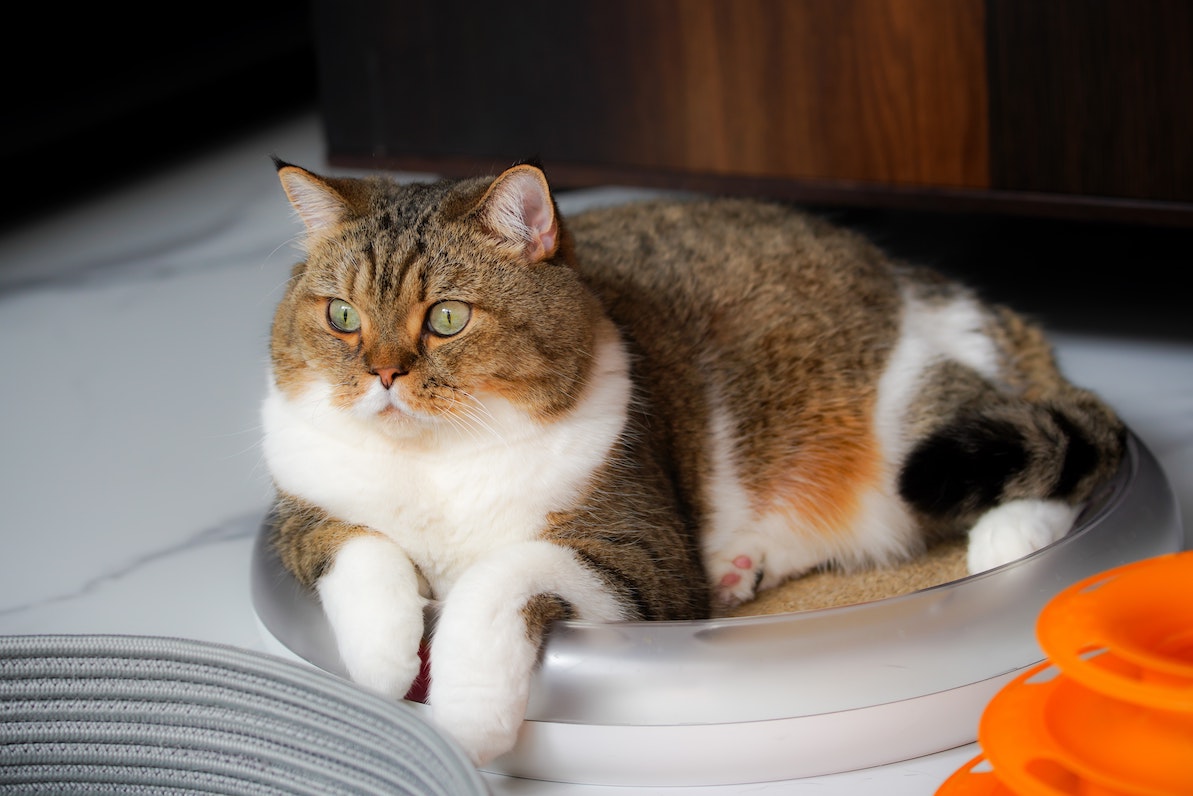It is often not easy to talk about health problems because the thought of our beloved pets being in pain is unbearable. In the case of health problems in particular, however, it is important to find out about possible diseases and health problems in cats. Because if you know what to expect, you can prevent possible diseases in a more targeted manner.
Today we are going to talk about various health issues that cats often struggle with.
1.Diabetes
Diabetes is a disease in which the body cannot produce insulin or properly process the insulin it produces. Insulin is a hormone produced by the pancreas that allows sugar to enter cells for energy.
If your cat has diabetes, it means their blood sugar levels are too high. Symptoms include excessive thirst and urination (polydipsia), loss of appetite (anorexia), weight loss, weakness, tiredness, and vomiting.
Even if a cat is diagnosed with diabetes, with proper treatment, it can live a long life. However, if left untreated, the condition can lead to serious complications, including blindness, kidney failure, nerve damage, skin infections and, in some cases, limb amputations. This can occur when blood flow is compromised due to ulcers on the legs or paws.
If you suspect your cat may have diabetes, you should make an appointment with your veterinarian to properly diagnose and treat the condition.
If you want to help your cat in addition to medical treatment, you can try to adapt her lifestyle to the condition. By doing more outdoor exercise or reducing overall food intake so that she can maintain her current weight rather than continue to lose weight, you can greatly improve your pet's quality of life.
2. Overweight/ obesity
Obesity is common in cats and, if left untreated, can lead to diabetes, heart disease and arthritis. A healthy diet and regular exercise are important to prevent obesity.
So feed your cat a balanced diet and play with your cat every day. In this way you can keep your house tiger happy and support its metabolism.
3. Bladder infection
Cystitis in cats is a painful condition that can affect our beloved furry friends. They suffer from symptoms such as frequent urination, pain and restlessness. For us cat parents, empathy is required. In addition to medication, it is important to ensure a stress-free environment and to pay attention to a balanced diet. With loving care and attention, we can help our four-legged friend to recover faster and lead a happy, pain-free life again.
4. Heart diseases
Unfortunately, heart disease is the leading cause of death in cats and one of the most serious health problems our four-legged friends can suffer from.
Heart disease can be caused by many factors, including diet, genetics, and stress. Symptoms of heart disease include coughing, shortness of breath, fainting, and weight loss.
5. Hyperthyroidism (Overactive Thyroid)
Thyroid hormones regulate metabolism, so overproduction can lead to weight loss, increased appetite, and increased urination.
If your cat suffers from an overactive thyroid, the treatment is usually medication that balances your four-legged friend's hormone levels.
6. Skin problems
Skin diseases are not uncommon in a cat's life. Some conditions are more common than others, so it's important to identify and treat them quickly.
The most common skin problems include:
a) Cat Acne:
Feline acnea condition characterized by blackheads on the chin, around the mouth, lips, or nose. This disease can also occur in other places, e.g. B. on the eyelids and ears.
b) Demodictive mange
Demodictive mange is a disease that only affects kittens but is transmitted through contact with other cats that already carry the pathogen (e.g. the cat's mother). Demodictive mange causes hair loss on the face, ears and various parts of the body, as well as itching all over the body.
7. Kidney disease
This disease mostly affects older cats (10 years or older) as it progresses slowly and without symptoms until it can become life-threatening in later stages.
Symptoms of kidney disease in cats include increased thirst, increased urination, loss of appetite and weight loss. However, these symptoms do not have to appear in all cases, which is why regular check-ups at the veterinarian are important.
8. Hairball
Hairballs form when cats groom themselves and swallow the hair that they have lost. Not only are hairballs uncomfortable, they can also lead to vomiting or constipation. Regular brushing can help reduce your cat's choking on hair and can improve your bond strengthen.
It is important for us pet parents to know what health problems our pets might have so that we can properly prevent them.



